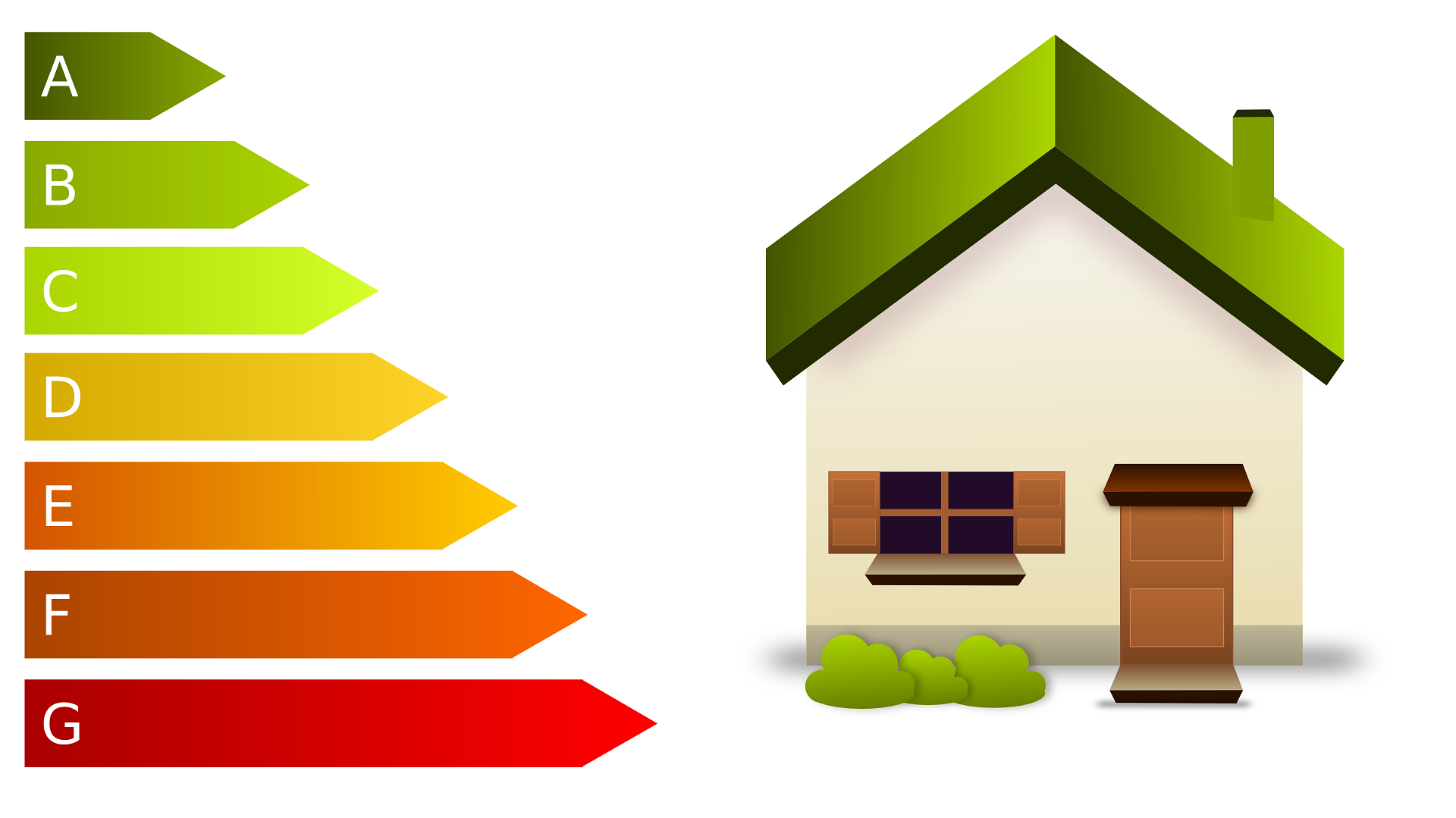In EEM, Energy Efficiency Measures by Robert Wheeler / 14 December 2023 / 0 comments

As the world grapples with the challenges of climate change and a growing awareness of environmental sustainability, energy efficiency has emerged as a critical consideration in various sectors, including real estate.
The concept of energy efficiency, which focuses on reducing energy consumption while maintaining or improving performance, has far-reaching implications for both the environment and financial aspects of property ownership.
This blog post aims to delve into the relationship between energy efficiency measures and property value. By exploring the various factors influencing property value enhancement through energy efficiency, analysing case studies, and examining financial benefits, market trends, and policy landscapes, we will gain valuable insights into how energy efficiency measures contribute to the overall value of properties.
Introduction: Exploring the Relationship between Energy Efficiency Measures and Property Value
Defining energy efficiency in the context of property value
When it comes to property value, energy efficiency refers to the measures taken to reduce the energy consumption of a building while maintaining a comfortable living environment. This can include insulating the building, upgrading appliances and systems to more energy-efficient ones, and utilizing renewable energy sources.
The importance of understanding the impact of energy efficiency on property value
With the increasing focus on sustainability and reducing carbon footprints, energy efficiency has become a key consideration for both homeowners and potential buyers. Understanding the impact of energy efficiency measures on property value is crucial for homeowners looking to make investments that not only save them money on energy bills but also increase the value of their property for potential resale.
The Impact of Energy Efficiency on Property Valuation: A Comprehensive Analysis
Evaluating the correlation between energy efficiency and property value
Several studies have shown a positive correlation between energy efficiency measures and property value. Research has indicated that properties with higher energy efficiency ratings tend to command higher prices in the real estate market. Buyers are increasingly willing to pay a premium for homes with lower energy consumption and reduced environmental impact.
Examining research studies on the relationship between energy efficiency and property value
A number of research studies have explored the impact of energy efficiency on property value. These studies have consistently found that energy-efficient homes not only sell for a higher price but also tend to spend less time on the market. This suggests that energy efficiency is an attractive feature for buyers and can significantly enhance a property’s marketability.
Factors Influencing Property Value Enhancement through Energy Efficiency Measures
The role of energy efficiency ratings and certifications
Energy efficiency ratings and certifications, such as ENERGY STAR and LEED, play a significant role in enhancing property value. These ratings provide potential buyers with tangible proof of a property’s energy efficiency and may increase its desirability. Buyers are increasingly seeking properties that have been independently assessed and certified for their energy performance.
Impact of energy-efficient appliances and systems on property value
Upgrading to energy-efficient appliances and systems, such as HVAC systems, water heaters, and lighting, can have a positive impact on property value. Not only do these upgrades reduce energy consumption, but they also contribute to a more comfortable and convenient living environment, which can be appealing to buyers.
The influence of building envelope and insulation on property value
The building envelope, including insulation, windows, and doors, plays a crucial role in maintaining energy efficiency. Improving the insulation and sealing any air leaks in a property can significantly reduce energy waste and lower utility costs. As a result, properties with well-insulated building envelopes tend to have higher property values.
Case Studies: Examining Real-life Examples of Energy Efficiency’s Impact on Property Value
Case study 1: Upgrading to energy-efficient windows and its effect on property value
In a case study conducted in a residential neighbourhood, homeowners who replaced their old windows with energy-efficient ones experienced an increase in their property value by 3-5%. The improved energy performance of the windows, along with the enhanced aesthetics, made the properties more attractive to potential buyers.
Case study 2: Installing solar panels and its impact on property value
Research has shown that installing solar panels can increase property value by an average of 3-4%. The ability to generate clean energy and reduce electricity costs is highly appealing to buyers, making properties with solar panels a valuable asset in the real estate market.
Case study 3: Energy-efficient HVAC system upgrade and its influence on property value
A case study analysing homes that underwent an energy-efficient HVAC system upgrade found that these properties sold at an average premium of 5-10% compared to similar homes without the upgrade. The energy and cost savings associated with more efficient heating and cooling systems make these properties highly desirable to potential buyers.
Remember, while energy efficiency measures can add value to your property, it’s important to consider local market conditions and the specific preferences of potential buyers in your area.
The Financial Benefits of Energy Efficiency: Cost Savings and Return on Investment
Calculating energy cost savings through energy efficiency measures
Let’s face it, we all love saving money. When it comes to energy efficiency measures, one of the most appealing benefits is the potential for cost savings. By upgrading your property with energy-efficient features such as insulation, LED lighting, or high-efficiency appliances, you can significantly reduce your monthly energy bills.
Calculating energy cost savings is relatively straightforward. You can compare your energy consumption before and after the upgrades and calculate the difference. Over time, these savings can add up to a substantial amount, allowing you to recoup your initial investment and then some.
Return on investment (ROI) of energy efficiency upgrades
Speaking of investments, let’s talk about return on investment (ROI). Energy efficiency upgrades are not just expenses; they are investments that can yield returns over time.
The ROI of energy efficiency upgrades is determined by dividing the total financial benefits, including energy cost savings and potential value appreciation, by the cost of the upgrades. A higher ROI indicates a more financially viable investment.
While the exact ROI will depend on various factors such as the cost of the upgrades and local energy prices, studies have shown that energy-efficient properties tend to have higher resale values, which can lead to favourable ROIs in the long run.
Exploring tax incentives and rebates for energy efficiency improvements
Who doesn’t love a good tax break or rebate? When it comes to energy efficiency improvements, many governments and utility companies offer incentives to encourage property owners to invest in greener upgrades.
These incentives can come in the form of tax credits, rebates, or grants, making energy efficiency upgrades even more financially attractive. By taking advantage of these programs, you can further reduce the cost of your upgrades and improve your overall ROI.
Keep in mind that the availability and extent of these incentives may vary depending on your location. It’s always a good idea to research local programs and consult with professionals who can guide you through the process.
Market Trends and Demand for Energy Efficient Properties: How Buyers and Tenants are Responding
Increasing demand for energy-efficient homes and commercial buildings
Gone are the days when energy efficiency was merely a buzzword. Today, buyers and tenants are actively seeking properties that prioritize energy efficiency. This growing demand is driven by a combination of environmental consciousness and financial considerations.
Energy-efficient homes and commercial buildings are not only more sustainable but also more cost-effective to maintain in the long run. As a result, properties with energy-efficient features tend to attract more interest, commanding higher selling and rental prices.
Consumer preferences and willingness to pay a premium for energy efficiency
When it comes to purchasing or renting a property, consumers are willing to put their money where their energy-saving hearts are. Studies have shown that a significant portion of homebuyers and renters are willing to pay a premium for properties with energy-efficient features.
Why? Because energy efficiency translates into tangible benefits such as lower utility bills, improved comfort, and reduced environmental impact. So, if you’re considering investing in energy-efficient upgrades, not only can you expect financial benefits, but you may also attract a larger pool of potential buyers or tenants.
The impact of energy efficiency on rental rates and occupancy rates
For property owners, rental rates and occupancy rates are critical factors to consider. Fortunately, energy efficiency can positively influence both.
Energy-efficient properties tend to have lower operating costs, which means landlords can offer competitive rental rates while still generating attractive returns. Additionally, energy-efficient properties often provide better comfort and air quality, making them more desirable to tenants.
Furthermore, government regulations and evolving consumer expectations are pushing for greener buildings, making energy efficiency a necessity rather than an option. As a property owner, embracing energy efficiency can help you stay ahead of the curve and attract a larger pool of responsible and eco-conscious tenants.
Policy and Regulatory Landscape: Government Initiatives and Incentives Driving Energy Efficiency Adoption
National and local government programs promoting energy efficiency in real estate
Governments around the world are increasingly recognizing the importance of energy efficiency in combating climate change and reducing energy consumption. As a result, they have implemented various programs and initiatives to promote energy efficiency in the real estate sector.
These programs can range from financial incentives, such as tax credits and grants, to mandatory energy efficiency standards and certifications. Staying informed about these national and local initiatives can help property owners make informed decisions and take advantage of available support.
Energy efficiency regulations and standards affecting property value
In many regions, energy efficiency regulations and standards have become an integral part of the real estate landscape. These regulations stipulate minimum energy performance requirements for new constructions or renovations, aiming to reduce carbon emissions and improve overall sustainability.
Adhering to these regulations not only helps protect the environment but also helps maintain or increase property value. Non-compliance with energy efficiency standards can lead to penalties or difficulty in selling or renting the property.
Incentives for property owners to invest in energy-efficient measures
To encourage property owners to invest in energy-efficient measures, governments often offer incentives beyond financial support. These may include expedited permitting processes, public recognition, or access to educational resources.
By taking advantage of these incentives, property owners can streamline their energy efficiency projects and gain additional benefits. It’s worth exploring what incentives are available in your area and how they can support your efforts to create a more energy-efficient property.
Conclusion: The Future Outlook and Recommendations for Maximizing Property Value through Energy Efficiency Measures
In conclusion, it is evident that energy efficiency measures have a tangible impact on property value. Through our analysis of the correlation between energy efficiency and property valuation, examination of case studies, and exploration of financial benefits and market trends, we have established that energy-efficient properties not only contribute to a greener future but also offer financial rewards for property owners. As sustainability continues to gain importance and energy costs rise, the demand for energy-efficient properties is expected to grow. To maximize property value, it is crucial for property owners and investors to embrace energy efficiency measures, prioritize energy-efficient appliances and systems, and stay informed about government incentives and regulations. By doing so, they can not only enhance the marketability and desirability of their properties but also contribute to a more sustainable and energy-efficient future.
Energy Efficiency Measures FAQs
The impact of energy efficiency measures on property value can vary depending on various factors such as location, type of improvements, and market demand. While energy efficiency measures are generally considered to be value-enhancing, it is important to conduct a thorough analysis of your specific property and consult with real estate professionals for a more accurate assessment.
Yes, many governments at the national, state, and local levels offer incentives and programs to encourage energy efficiency improvements in real estate. These can include tax credits, grants, and low-interest loans. It is advisable to research the available programs and consult with local authorities or energy agencies to determine eligibility and take advantage of these opportunities.
Market trends indicate that energy-efficient properties often enjoy higher demand and can command a premium in both the sales and rental markets. Buyers and tenants are increasingly valuing energy efficiency due to its potential for long-term cost savings and environmental benefits. However, the extent of the premium can vary based on factors such as location, property features, and market conditions.
The ROI of energy efficiency measures can vary depending on several factors, including the type of improvement, initial cost, and energy cost savings. Generally, measures such as upgrading insulation, installing energy-efficient windows, and implementing high-efficiency heating and cooling systems tend to offer favourable ROI. However, it is advisable to conduct a cost-benefit analysis and consider professional advice to identify the most suitable energy efficiency measures for your property.
Ready to discuss your regeneration project and how NXTGEN Futures Ltd can elevate it with expert retrofit? Contact us today!
Latest Retrofit Posts
- What a retrofit-first approach offers the UKRetrofitting is like giving your home a makeover to make it more energy-efficient, comfortable, and healthy. The retrofit-first approach prioritizes upgrading existing buildings over new construction to tackle climate change and improve living conditions. Definition of Retrofitting Retrofitting involves making… Read more: What a retrofit-first approach offers the UK
- What is internal wall insulation?Internal wall insulation is a crucial component of creating a comfortable and energy-efficient living space. By insulating the walls within a building, homeowners can experience benefits such as improved thermal performance, reduced energy bills, and enhanced acoustic comfort. Understanding the… Read more: What is internal wall insulation?
- What is a retrofit assessor?Retrofit assessors play a crucial role in the sustainability and energy efficiency of buildings by evaluating and identifying opportunities for improvement. This blog post aims to provide an in-depth understanding of the responsibilities, qualifications, and benefits associated with being a… Read more: What is a retrofit assessor?
- What is a retrofit assessment in the UK?Retrofit assessments play a crucial role in the sustainable development of buildings in the UK, helping to improve energy efficiency, reduce carbon emissions, and enhance overall building performance. By evaluating existing structures and identifying opportunities for upgrades and enhancements, retrofit… Read more: What is a retrofit assessment in the UK?
- Retrofit and Energy Efficiency in Historic BuildingsHistoric buildings are not only architectural treasures but also valuable cultural assets that contribute to our sense of history and identity. However, many of these buildings often suffer from poor energy efficiency, leading to excessive energy consumption and high operating… Read more: Retrofit and Energy Efficiency in Historic Buildings
- What is retrofitting in construction?Retrofitting in construction is a crucial process that involves upgrading existing buildings or structures to meet modern standards of safety, energy efficiency, and functionality. This blog post explores the concept of retrofitting, its importance, various techniques used in the industry,… Read more: What is retrofitting in construction?
- CASE STUDY: Curtis WayDelivering a Holistic Retrofit Solution with EWI & Solar Energy Project Overview NXTGEN Futures Ltd. successfully completed a large-scale retrofit project on Curtis Way, Berkhamsted, England, UK. This case study showcases our expertise in External Wall Insulation (EWI), retrofit coordination,… Read more: CASE STUDY: Curtis Way
- What happens to a building during retrofitting?Building retrofitting is a vital process that involves making significant modifications and improvements to existing structures to enhance their efficiency, functionality, and sustainability. In this blog post, we will delve into the intricate workings of building retrofitting, exploring the various… Read more: What happens to a building during retrofitting?
- UK Government Retrofit Scheme: Making Energy Efficiency Cool AgainIntroduction to the UK Government Retrofit Scheme Background of the Retrofit Scheme Picture this: you’re sitting at home, snuggled up in your favourite blanket, enjoying a cup of tea, when suddenly you feel a draft. Not cool, right? Well, that’s… Read more: UK Government Retrofit Scheme: Making Energy Efficiency Cool Again
- What are Retrofit Trickle Vents?Improving indoor air quality and enhancing energy efficiency are key priorities for many homeowners. In this article, we will explore the concept of retrofit trickle vents and their role in achieving these goals. Trickle vents are small, adjustable openings integrated… Read more: What are Retrofit Trickle Vents?
- Retrofit Underfloor HeatingRetrofit underfloor heating has gained significant popularity as a cost-effective and efficient solution for enhancing the comfort and energy efficiency of existing buildings. Unlike traditional radiator systems, underfloor heating distributes warmth evenly across the floor, providing a comfortable and cozy… Read more: Retrofit Underfloor Heating
- Retrofit LondonRetrofitting has emerged as a crucial solution in transforming the landscape of cities, and London is no exception. As a global hub of culture, commerce, and innovation, London faces the pressing challenge of reducing its carbon footprint while ensuring sustainable… Read more: Retrofit London












